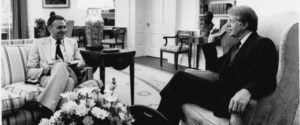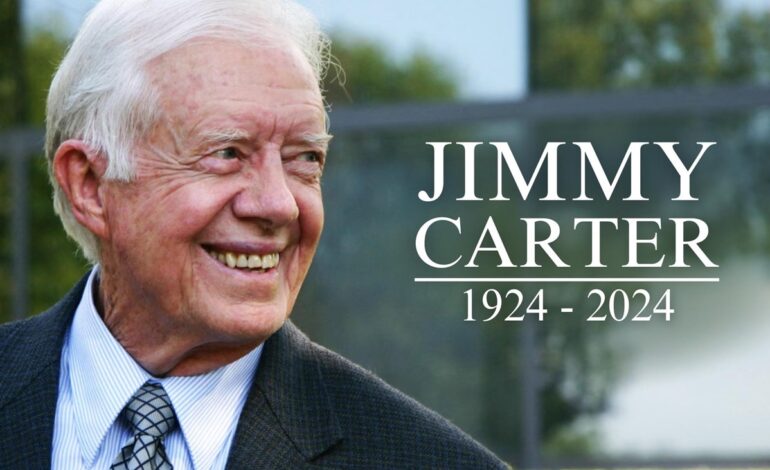Jimmy Carter spent four years as president of the United States and 44 years as ex-president. It’s his extraordinary career as our former president that we are most likely to celebrate.
Prior to Carter, former presidents were likely to go off to a comfortable retirement. Carter, who died last month at 100, changed the pattern. He gave us a new model for a vigorous and productive post-presidential life, one that former presidents are now expected to emulate.
Together with his wife, Rosalynn, who deserves a great deal of credit, Carter traveled the world and worked tirelessly to resolve conflicts, eradicate disease and alleviate suffering, work that earned him the Nobel Peace Prize in 2002. As President Biden said, “Jimmy Carter stands up as a model of what it means to live a life of meaning and purpose, a life of principle, faith and humility.”
It’s surprising, in some ways, that this is the case. When he left office, after losing a landslide 1980 election to Ronald Reagan, he was widely regarded as an ineffectual leader.

Rep. Lee H. Hamilton with President Carter in the White House Oval Office. Images courtesy of the Indiana University Wells Library Lee Hamilton Photo Collection.
Running for office, Jimmy Carter was a marvelous, down-to-earth campaigner. He was a Georgia peanut farmer with an aw-shucks simplicity that appealed to the average voter. In fact, he was smart and sophisticated, a Navy officer and a nuclear engineer with widespread interests. Many people underestimated his sharp analytical intelligence.
Carter had a real ability to connect with audiences. I remember watching him speak and hearing the crowd erupt with shouts of “Sock it to ‘em, Jimmy.” Well before Donald Trump, he ran against Washington and appealed to Americans’ distrust of the establishment.
His political career embodied the distinction between campaigning and governing. When he shifted from the politics of attacking government to the politics of running the country, something didn’t click. Although his Democratic Party controlled the House and Senate, he couldn’t translate his campaign skills into getting things done. He remained a Washington outsider and never mastered the language to communicate well with those of us who were in Congress.
It didn’t help that the economy was in a slump. In 1980, inflation hit 10 percent and interest rates 18 percent. Carter’s calls for patience and austerity didn’t land well. The Iran hostage crisis was a serious blow, and a hostage rescue attempt that Carter approved ended in tragedy.
On the positive side, Carter’s presidency brought lasting gains in energy conservation and environmental protection. Two cabinet departments, Education and Energy, were created. In foreign policy, he signed the Panama Canal Treaty, normalized relations with China and prioritized human rights.
The Camp David Accords of 1978 were his major foreign policy success. Over two weeks at the presidential retreat in Maryland, he worked with Egyptian President Anwar Sadat and Israeli Prime Minister Menachem Begin to hammer out an agreement. His attitude was, you’re going to sit there until you get something done. The parties knew he meant business.
Obviously, the agreement didn’t bring permanent peace and stability to the Middle East, but it showed that the parties could talk and make progress. Psychologically, as well as substantively, it was a noteworthy effort in the history of our diplomacy.
Subsequently, the Carter Center in Atlanta, which Carter founded after leaving office, has monitored elections in 40 countries, strengthened human rights standards and facilitated peace talks. It established village-based health systems in Africa and led a coalition that effectively eradicated Guinea worm disease. Carter led these efforts while living modestly in Plains, Georgia; teaching Sunday School at a local Baptist church and, with Rosalynn, volunteering each year to build houses with Habitat for Humanity.
When Carter was awarded the Nobel Peace Prize, a member of the prize committee remarked that he may not have been America’s most effective president, but he was “certainly the best ex-president the country ever had.” That was 22 years ago, and it remains true today.
– Lee Hamilton is a distinguished scholar at the IU Hamilton Lugar School of Global and International Studies and senior advisor for the Indiana University Center on Representative Government. He was a member of the U.S. House of Representatives for 34 years.






Leave a Reply